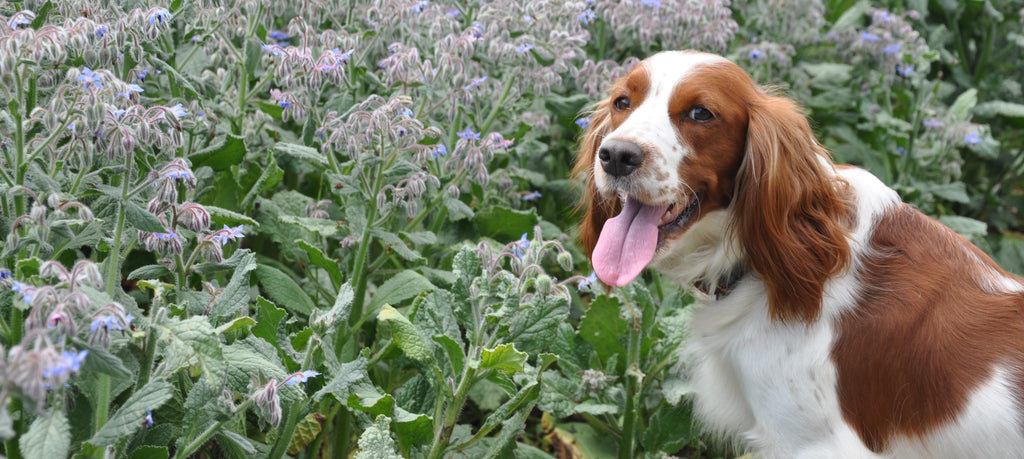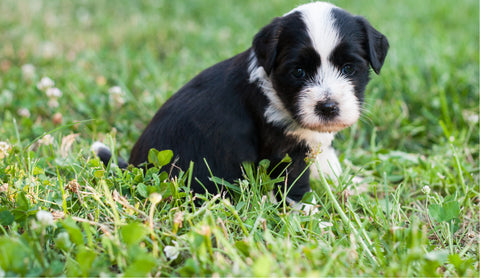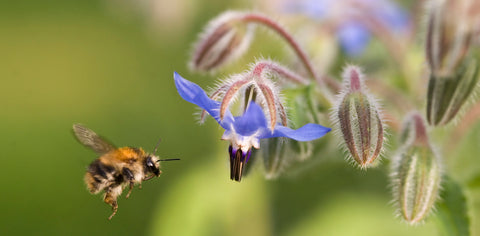
Why Essential Fatty Acids are vital for dogs
Open up the health section of any newspaper or magazine these days and you’ll find articles on why we need to eat more Essential Fatty Acids (EFAs). They’re important because the body can’t produce them on its own. We have to get them from our diet.
Why dogs need Essential Fatty Acids too
Exactly the same is true for our four-legged friends. Like us, dogs need to get these nutrients from the food that they eat. EFAs play a crucial role in maintaining the healthy function of your dog’s heart and liver, helping their skin and coat to stay healthy and their joints to stay strong.
If your dog isn’t getting enough EFAs from their diet, they can develop a variety of problems. These can vary from dry itchy skin and a dull coat to heart disease, diabetes and a compromised immune system.
Omega oils for dogs’ skin and coat health
The main types of EFAs we hear about are Omega 3 and Omega 6. They have an important role to play in keeping your dog’s skin in great condition and ensuring their coat looks glossy and shiny.
Benefits of Omega 3:
- It helps keep dogs’ coats in good condition and supports the outer coat hairs, providing waterproofing and protection from the elements.
- It has a calming effect on pets’ skin, helping to ease itching and scratching
Benefits of Omega 6:
- It helps to nourish and replenish dogs’ skin, ensuring the skin stays in good condition, and maintains active coat growth. It also soothes sensitive skin and reduces itching and scratching.
- It’s the main component of the skin’s moisture barrier and supports the skin’s natural defences. It can help stop the skin drying out, reducing moulting and dandruff. It can also help your dog maintain a barrier against the allergens that cause itching.
Foods that are rich in Omega 3 and Omega 6
Omega 3 and Omega 6 are mostly found in fish oils, especially in those from cold-water fatty fish such as salmon, mackerel, tuna, herring and sardines.
You can also find EFAs in nuts and seeds, such as flax seed, chia seeds and walnuts, and in plant oils, including flax seed oil, rapeseed oil and sunflower oil.
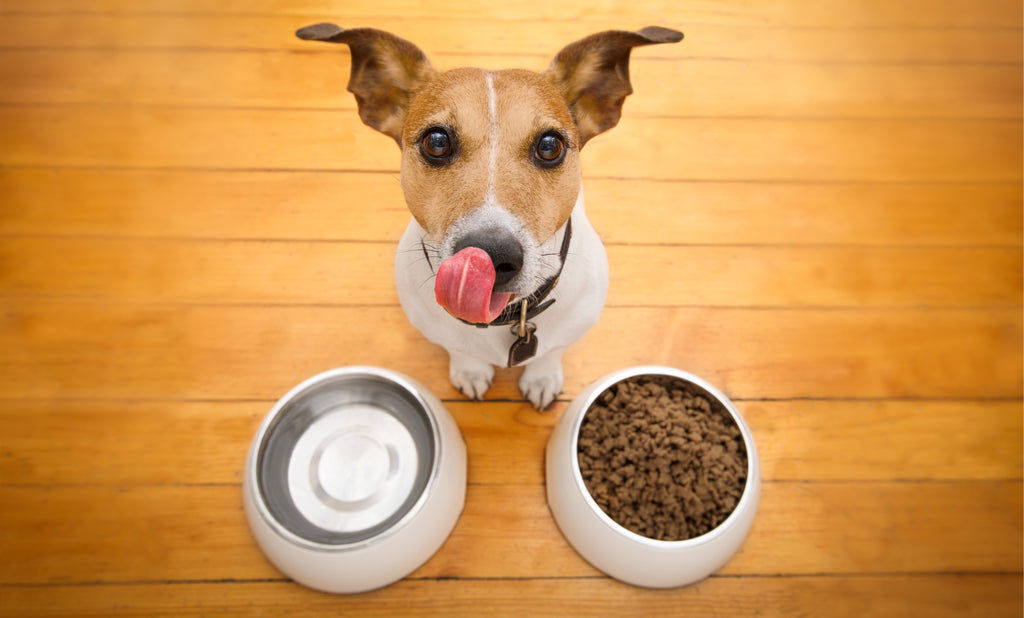
Omega 3 and Omega 6 in dog food
As dogs can’t produce Essential Fatty Acids themselves, you’d think it would make sense to include Omega 3 and Omega 6 in dog food. And if you look at the ingredients on your pup’s favourite dinner, you might see Omega 3 and Omega 6 listed there.
The trouble is, Essential Fatty Acids are tricky to preserve and, when dog food is cooked before being packaged, the heating process can drastically reduce their nutritional value.
YuDERM: Omega oils for a glossy coat
That’s why we took a different approach when we created our first ever Lintbells product, YuDERM. We initially came up with the idea for YuDERM because we wanted to produce a natural supplement that would help make show dogs’ coats shiny and glossy.
We’d seen some impressive scientific research about the effect of Omega 3 and Omega 6 on dogs’ skin and coats, and were determined to use only the purest, highest-quality natural ingredients.
The finest natural sources
We started experimenting with the best sources of Omega 3 and Omega 6 oils and produced our own special blend of the following oils.

- Golden flax oil – We use a special variety of golden flax that is more than 55% Omega 3, and we can trace every seed back to a specific farm or field. Golden flax contains Omega 3 which improves coat condition and Omega 6 which reduces moulting.
- Starflower (Borage) oil– Our starflower oil has a high specification of Omega 6 and comes from crops grown on UK farms. The Omega 6 in starflower oil helps to soothe your dog’s sensitive skin, reduces moulting and encourages coat growth.
- Salmon oil– YuMEGA Show Dog and YuDERM Itchy Dog also include fresh salmon oil that comes directly from the fjords of Norway. This high-quality oil is a rich source of Omega 3 that helps improve your dog’s coat condition, calms their skin and supports heart health.
Your Omega oil checklist
If you’re thinking of getting an Omega oil supplement or fish oil supplement for your dog, there are a few things to look out for to make sure that you’re getting a high-quality product. Here’s our checklist based on our years of experience with the YuDERM range.
- All oils are not created equal. There’s a huge variation in the quality of oils, depending on where and how they are grown. We specifically choose UK-grown varieties of golden flax and starflower oil that have high percentages of Omega oils.
- Balance is important. It’s not a question of adding as much of each oil as possible into the supplement. The oils interact with each other, so we use a carefully-judged balance to make sure that the supplement is as effective as possible for your pet.
- Cold preserves, heat destroys.Heat can quickly diminish the nutrients in oils. We use cold-pressed oils that are ground using granite millstones or stainless steel presses in order to retain their flavour, aroma and nutritional value.
- Good enough to eat.After pressing, we filter our oils to remove any impurities. We then test for purity and taste to make sure they’re good enough for your dog to eat.
- Freshly bottled.We look after these sensitive active oils by packing our supplements in special bottles that block out light and oxygen, to keep the oils as fresh and pure as possible, ready for your pet to enjoy.
Don’t just take our word for it
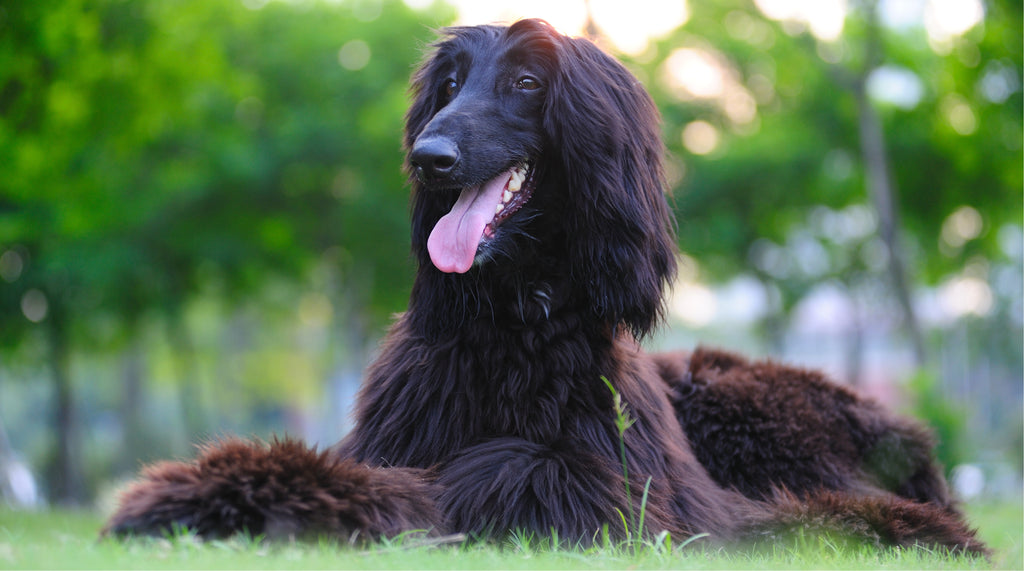
If you think your dog could benefit from taking YuDERM, please call our friendly customer care team and they’ll give you some advice. In the meantime, here’s what our long-term customer Audrey Knowles has to say about YuDERM Dog:
“We have used this for the last 12 years at least for our five Afghan Hounds and if I didn't think it was excellent, I wouldn't still be buying it!”
Audrey, we love the sound of a home filled with Afghan Hounds. Long may their coats be smooth, silky and flowing.



